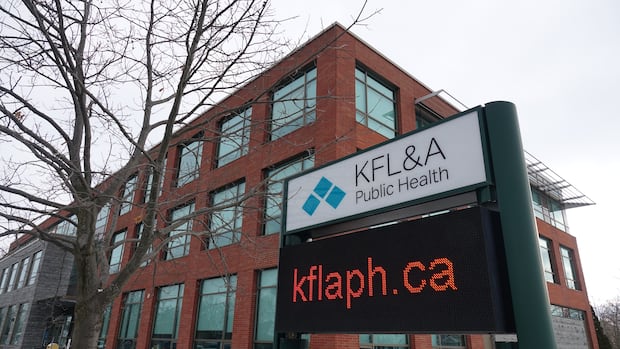OttawaThe board of Southeast Public Health (SEPH) has passed a motion asking its CEO to reconsider a plan to shutter eight rural offices and explain what led to that decision.Closing offices March 1 will be ‘devastating’ for smaller communities, says health inspectorDan Taekema · CBC News · Posted: Nov 27, 2025 4:00 AM EST | Last Updated: 31 minutes agoListen to this articleEstimated 3 minutesThe audio version of this article is generated by text-to-speech, a technology based on artificial intelligence.The public health office in Kingston is one of a handful that would remain open if Southeast Public Health moves ahead with a plan to close rural locations on March 1. (Dan Taekema/CBC)The board of Southeast Public Health (SEPH) has passed a motion asking its CEO to reconsider a plan to shutter eight rural offices and explain what led to that decision.The call comes as officials across eastern Ontario speak out against the proposed closures, which were due to take effect in March.SEPH announced last week that it planned to terminated leases in Almonte, Gananoque, Kemptville, Napanee, Perth, Picton and Trenton. An eighth office in Cloyne which SEPH owns would be sold.Dr. Piotr Oglaza, SEPH’s medical officer of health and CEO, blamed financial constraints, but said the closures wouldn’t mean a reduction in service.Greater Napanee Mayor Terry Richardson said he can’t see how that’s possible.”Putting a price on health care is … really a sketchy business,” he said. “I can’t help but think that there’ll be a reduction.”Greater Napanee Mayor Terry Richardson said he can’t see how closing the public health offices won’t affect service to people in those communities. (Supplied by Greater Napanee)Richardson said the office in Napanee offers a range of services from water testing and dental care to nutrition programs for toddlers, and said there was no warning prior to last week’s announcement.”It leaves folks feeling quite concerned,” he said. “It’s just difficult to try and understand how they’re going to be able to provide these programs without actually having a brick-and-mortar facility here to do that.”‘We are deeply concerned’In a Facebook post, North Grenville Mayor Nancy Peckford said she and Township of Edwardsburgh Cardinal Mayor Tory Deschamps had written to the health unit to request the data behind the decision be made public, and to ask that the closure of the Kemptville location be re-evaluated.According to Peckford, it’s neither “efficient nor equitable” to consolidate services to larger centres like Smiths Falls, Brockville, Kingston or Belleville.”We are deeply concerned that the potential closure is being undertaken without sufficient municipal consultation, no comprehensive impact assessment, or consideration of operational efficiencies that could be achieved through partnership rather than withdrawal,” she wrote.Oglaza said the rural branches sometimes hosted clinics just a few times a month and were often closed two or three days a week. He said the health unit determined the money spent on those leases could be put to better use.SEPH said it’s working on a rural service strategy. A report received by its board Wednesday suggested mobile clinics, virtual testing and working with community partners as ways to deliver support.The board also deferred a decision on a staff recommendation to sell the Cloyne office to save roughly $15,500 a year.Oglaza has been asked to explain the criteria used to justify the closures during the board’s next meeting on Dec. 17.Health inspector skepticalMerima Kosteki, a public health inspector for SEPH, said she’s waiting to learn how services will be provided after community offices close.”I’m skeptical … when they tell us that closure of rural locations is going to somehow be okay, because we know history tells us different,” Kosteki said Wednesday during a news conference at Queen’s Park.Merima Kosteki, centre, a public health inspector with Southeast Public Health, spoke during a news conference at Queen’s Park on Wednesday. (Supplied by Jesse Mintz)”This will absolutely impact service delivery, and this will absolutely impact the health in those communities.”ABOUT THE AUTHORDan Taekema is CBC’s reporter covering Kingston, Ont. and the surrounding area. He’s worked in newsrooms in Chatham, Windsor, Hamilton, Toronto and Ottawa. You can reach him by emailing daniel.taekema@cbc.ca.Follow @DanTaekema on Twitter
Wednesday, 4 Mar 2026
Canada – The Illusion
Search
Have an existing account?
Sign In
© 2022 Foxiz News Network. Ruby Design Company. All Rights Reserved.
You May also Like
- More News:
- history
- Standing Bear Network
- John Gonzalez
- ᐊᔭᐦᑊ ayahp — It happened
- Creation
- Beneath the Water
- Olympic gold medal
- Jim Thorpe
- type O blood
- the bringer of life
- Raven
- Wás’agi
- NoiseCat
- 'Sugarcane'
- The rivers still sing
- ᑲᓂᐸᐏᐟ ᒪᐢᑿ
- ᐅᑳᐤ okâw — We remember
- ᐊᓂᓈᐯᐃᐧᐣ aninâpêwin — Truth
- This is what it means to be human.
- Nokoma











